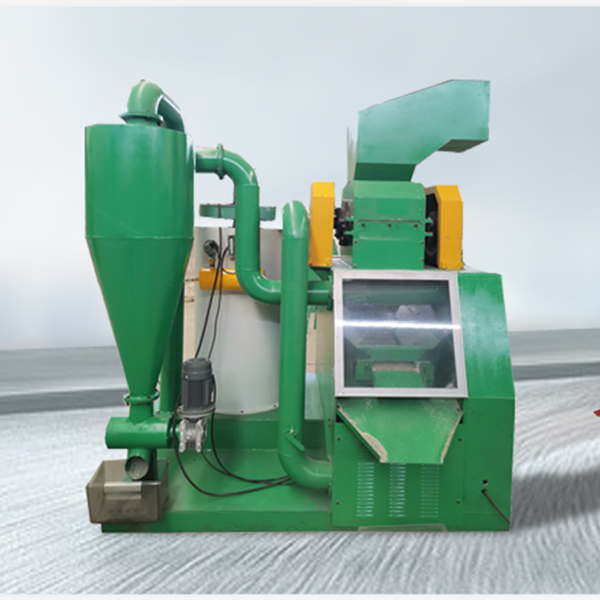
8 月 . 29, 2024 18:09 Back to list
The Importance of Cable Granulation in Recycling
Cable granulation is an essential process in the recycling industry, focusing on the recovery of valuable materials from used and discarded electrical cables. With the increasing global awareness of environmental sustainability and the rapid expansion of electronic waste, cable granulation has gained significant importance in promoting a circular economy. This article explores the cable granulation process, its benefits, and its impact on the environment.
Cable granulation involves the mechanical breakdown of cables to separate their components, primarily copper and plastic. The process begins with the collection of scrap cables, which can include everything from discarded electrical wiring to obsolete communication lines. Once collected, these cables are shredded into small pieces. This shredding process is crucial as it prepares the material for further processing, allowing for effective separation of metals from non-metal components.
After shredding, the next step is the separation of metals from the insulation materials. This is typically achieved through various methods, including air classification, magnetic separation, and eddy current separation. Air classification uses airflow to sort materials based on their weight, while magnetic separation extracts ferromagnetic metals like steel. Eddy current separators, on the other hand, are particularly effective in isolating non-ferrous metals such as copper and aluminum, which are highly prized in the recycling market.

One of the most significant benefits of cable granulation is the recovery of copper. Copper is a valuable resource due to its excellent electrical conductivity, and the demand for recycled copper has surged in recent years. By recycling copper through granulation, companies can reduce the need for virgin copper mining, which is not only costly but also environmentally detrimental. The extraction of copper ore involves extensive land disruption, water pollution, and considerable energy consumption.
Additionally, cable granulation significantly decreases the amount of waste sent to landfills. Electronic waste, commonly referred to as e-waste, is one of the fastest-growing waste streams globally. By efficiently recycling cables, businesses can divert a substantial quantity of e-waste from landfills, thereby reducing the negative environmental impacts associated with waste disposal. This process also helps in minimizing hazardous materials, such as lead and PVC, from entering the environment, which can pose threats to both human health and ecosystems.
Furthermore, the cable granulation process contributes to job creation and economic growth. As the recycling industry expands, it generates new jobs in areas such as collection, processing, and distribution of recycled materials. These jobs can play a vital role in local economies and can promote community development while fostering technological advancements in recycling methods.
In conclusion, cable granulation serves as a vital process in the world of recycling, offering extensive benefits in terms of resource recovery, environmental protection, and economic growth. By promoting this efficient recycling method, we can work toward a more sustainable future where valuable materials are reused, and environmental harm is minimized. As the demand for electronic products continues to rise, so too does the importance of investing in practices like cable granulation that support the principles of a circular economy.
Latest news
Unveiling the Power of Eddy Current Separator
NewsSep.25,2024
Transform Your Home Recyclin:home metal shredder
NewsSep.25,2024
The Future of Waste Management with Recycling Line Picker
NewsSep.25,2024
The Benefits of a Metal Recycling Plant
NewsSep.25,2024
Revolutionize Material Separation with Onwang Technology
NewsSep.25,2024
Innovative Waste Management: Unveiling the MSW Sorting Plant
NewsSep.25,2024